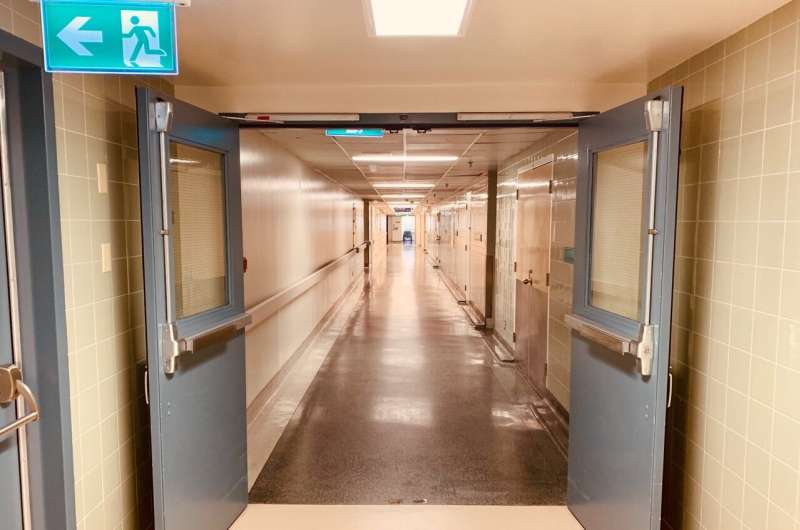

Health care workers are exhausted and angry. Some of Idaho’s coronavirus vaccines are expiring because they have sat unused for so long. And coronavirus case numbers and deaths continue to climb, putting the state among the worst in the nation for the rate of new COVID-19 diagnoses.
Idaho’s public health leaders painted a grim picture—again—during a weekly briefing on the pandemic Tuesday.
The state continues to set record highs with 686 hospitalized COVID-19 patients as of Sept. 18, 180 of them in intensive care unit beds and 112 on ventilators, Idaho Department of Health and Welfare Dave Jeppesen said. At the moment, there is no end in sight to the surge.
“The numbers continue to increase, and we expect them to continue to increase,” Jeppesen said.
The entire state entered “crisis standards of care” last week, officially allowing hospitals to ration health care as needed so that scarce resources can be directed to the patients most in need and most likely to survive.
Urgent surgeries have been placed on hold, some patients are being treated in hospital lobbies or field hospitals, and hospital administrators and doctors are desperately trying to shuffle the sickest patients to any facility that has enough open beds or ventilators to treat them.
On the weekend, physicians at one Idaho hospital nearly had to face “de-allocation”—in which one patient is taken out of an ICU bed in order to give it to someone with a greater chance of survival—but narrowly avoided it after beds were found for patients at hospitals elsewhere in the state and some other patients died, said Dr. Jim Souza with St. Luke’s Health System.
Jeppesen said his family experienced crisis standards of care first-hand, when own mother had a stroke just a few hours after the crisis standards of care were enacted statewide.
He said some of her medical care was carried out in a non-traditional part of a Boise hospital, and that she was discharged the same day instead of being kept overnight for observation, as would have normally been done. He and other family members cared for and monitored her at home, Jeppesen said, and his mother is recovering well.
Still, he said, the added worry about the availability of health care made dealing with the stroke tough.
“We are so lucky to have such talented health care professionals in Idaho,” Jeppesen said, growing emotional. “And those same health care professionals need our help. They need the unvaccinated to please consider getting vaccinated.”
Everyone should wear masks indoors and in crowded outdoor spaces to avoid spreading the highly contagious delta variant, Jeppesen said.
Idaho’s vaccination rates remain among the lowest in the nation, with about 51% of all eligible residents fully vaccinated against coronavirus, according to numbers from the Idaho Department of Health and Welfare.
One out over 213 Idaho residents tested positive for COVID-19 within the past week, according to a tally from Johns Hopkins University—making Idaho eighth in the nation when it comes to the worst COVID-19 diagnosis rates.
The rolling average number of daily new coronavirus cases has increased by nearly 53% over the past two weeks.
Vaccination rates have been climbing in the state, but very slowly, and Idaho recently had to throw out unused vaccine doses because they expired, said Sarah Leeds, manager of the Idaho Immunization Program.
State officials have been working with the U.S. Centers for Disease Control and Prevention to move vaccine around to where it needed when it is close to expiring, she said.
The state still has plenty of vaccine on hand for anyone who is seeking to be vaccinated, as well as anyone who might need a booster shot if the FDA decides boosters are needed, Leeds said.
Gov. Brad Little also announced Tuesday that an additional $10 million in relief funds will be directed to Idaho hospitals, primary care provider, urgent care clinics and skilled nursing facilities because of the surge in COVID-19 patients.
“This latest round of support will help ease the burden on our hospitals and health care heroes right now,” Little said in a prepared statement.
Source: Read Full Article